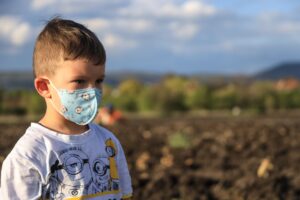
The Hidden Dangers of Social Media: How It Can Eat Away at Your Mental Health
The dangers of social media have become an increasingly important target for clinical research. If the current literature is correct, social media is quietly creating
Neurocove Behavioral Health, LLC
Specialists in psychological assessment, therapy, and counseling for
anxiety, depression, and trauma throughout Florida.
At Neurocove Behavioral Health, we believe in bringing our community and clients the best information possible. Information based on scientific research, clinical utility, and most of all, information that is practical and useful. This page is our distribution hub for original mental health articles, guest blogs, and research summaries from our treatment team, peer-reviewed articles, and leading experts in the field. We provide these articles free of cost, free of advertisements, and free of misinformation. If you do not see an article you’re looking for and have questions on a particular topic, our editorial team would love to field your questions. After all, if you have a question not addressed here, someone else probably does to. Email us here.

The dangers of social media have become an increasingly important target for clinical research. If the current literature is correct, social media is quietly creating

The Importance of Social Support in Mental Health The importance of Social Support in Mental Health has been observed repeatedly in psychological research. Mental health is

The research is clear: Physical activity boosts mental health. Research has robustly demonstrated that exercising improves sleep, emotional regulation, and energy levels. But how are

Why New Years Resolutions Fail (And the Science behind Success). It’s that time of year again. Christmas is around the corner, and with each
Let’s talk about anger. Anger is an emotion we all feel, but sometimes it can get out of control. We might get into fights or

How do I find a trauma therapist near me? Trauma can have lasting effects on our life, so addressing it and working with a professional

Death is a certainty. Coping with death in an adaptive way it is not. The one indisputable human universal is death. We all will have

Dear fellow Parents, Coping with COVID-19 has been a serious challenge. Let’s face it: 2020 has been an unmitigated dumpster fire. That’s not a clinical

Let’s talk about my two favorite coping skills for anxiety and stress. Anxiety is an issue that many people deal with on a daily basis,

Let’s talk about Anxiety. Anxiety is a normal response to stress. Whether you are getting ready for a job interview, a first date, or a

Let’s talk about Panic Disorder, Panic Attacks, and Agoraphobia Panic disorder is an anxiety disorder characterized by frequent and unexpected panic attacks that are distressing.

Let’s talk about Diagnosing PTSD Post-traumatic stress disorder (PTSD) is a mental health condition that can follow traumatic events. Symptoms may begin immediately following the

What is the Benefit of Faith on Mental Health? Does someone’s belief in God affect their mental health? According to new research by Jong Hyun

Let’s face it. You’re probably getting less personal time than you used to. And the time you’re getting? It’s probably not the same. The

Setting boundaries can be tough. These tips can make the process smoother! The global pandemic caused by the COVID-19 virus has resulted in unprecedented disruption

What are “fair fighting rules”, and how can they help us? At some point, most people who are in relationships will find themselves in conflict

Posttraumatic Stress Disorder affects approximately 4% of the general population[1]. There are over 600,000 possible combinations of PTSD symptoms[2], which include increased anxiety, irritability, depression,

Cognitive Processing Therapy: Everything you need to know about this Evidence-Based therapy for PTSD. Cognitive Processing Therapy Cognitive processing therapy (CPT) is a trauma-focused

What is Posttraumatic Stress Disorder (PTSD?) Posttraumatic Stress Disorder (PTSD) is a mental health disorder that occurs in 13-15% of people throughout their life after

Licensed Mental Health Counselor
My name is Jessica Candelo, LMHC, but you can call me Jess, if you’d like. I am a Marine Corps veteran and a mom which both play into my experiences and understanding of life. I have experience working with individuals facing anxiety, depression, stress, trauma, insomnia, parenting stress, military related stressors and/or traumas, and addictions. I focus on providing a safe and comfortable environment, paired with evidence-based therapies to suit the needs of my clients and meet their personal goals of recovery and growth. It’s not easy and sometimes we just want to throw in the towel, but that does not have to be the final answer. Together we can work through what you’re experiencing and move toward a place of healing.
I try to provide a genuine, light-hearted, and humanistic environment to every session. To be honest, I try to make sure every session feels like a normal conversation by utilizing everyday language and rhetoric; I might even through in some humor where appropriate because laughter can often feel like a breath of fresh air. Overall, I want you to feel like you can voice your needs and concerns without fear of judgement all while finding suitable, potential solutions. Life is hard to navigate at times but I’m here to help.

POSTDOCTORAL FELLOW
My name is Dr. Rachel Creamer. I specialize in providing evidenced-based care to those struggling with anxiety, depression, substance use, and trauma. Seeking therapy takes tremendous courage. You are taking the first step toward positive change. We will work together to help you reach a fulfilling and values-driven life.
The goal of our first session is to better understand what brings you to therapy and to get to know you better. In the first session we will also talk about your goals for treatment and ways to accomplish these goals. We will also focus on learning skills to help you start making positive changes today.
Therapy can bring about great positive change. Fostering a safe and compassionate space for clients is the foundation for allowing growth in therapy. Therapy is collaborative. While I am the expert on evidence-based treatment, you are the expert on you. We will work together on reaching your treatment goals and creating a more gratifying life.

LICENSED CLINICAL PSYCHOLOGIST
My name is Nicholas James, Ph.D. I have experience working with individuals facing anxiety, depression, stress, trauma, insomnia, and caregiver strain. I focus on matching evidence-based therapies to the needs of my clients to meet their personal goals of recovery and growth.
I believe that change occurs through personal reflection, cultivating strengths and resources, and incorporating growth into everyday life. It is my goal that each session is collaborative and integrates needs, beliefs, and your background into a person-centered treatment plan.
I try to bring a genuine, humanistic atmosphere to every session. My therapeutic approach is centered in Cognitive Behavioral Therapy (CBT) and incorporates additional evidence-based practices to address unique needs that arise during therapy.

LICENSED CLINICAL PSYCHOLOGIST
My name is Dr. Benson Munyan. I am a board-certified clinical psychologist. I specialize in working with those experiencing symptoms of anxiety, depression, and trauma. If you are reading this, there’s a good chance you’re looking for something. Whatever the origin of your story, you are here. There is no time like the present to change our tomorrow.
From our very first session, skills are introduced, demonstrated, and assigned as practice assignments between meetings. I collaboratively set each session agenda with my clients, ensuring we have time for following up since the last session, troubleshooting any problems with skills or homework, and working on new problems or material.